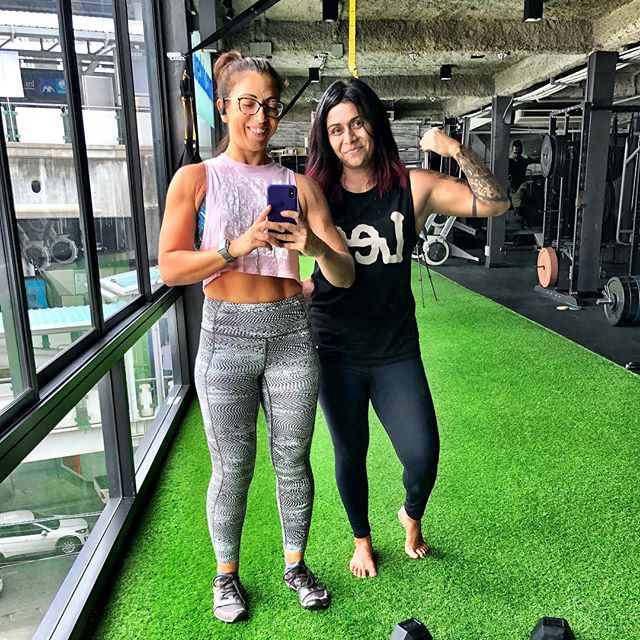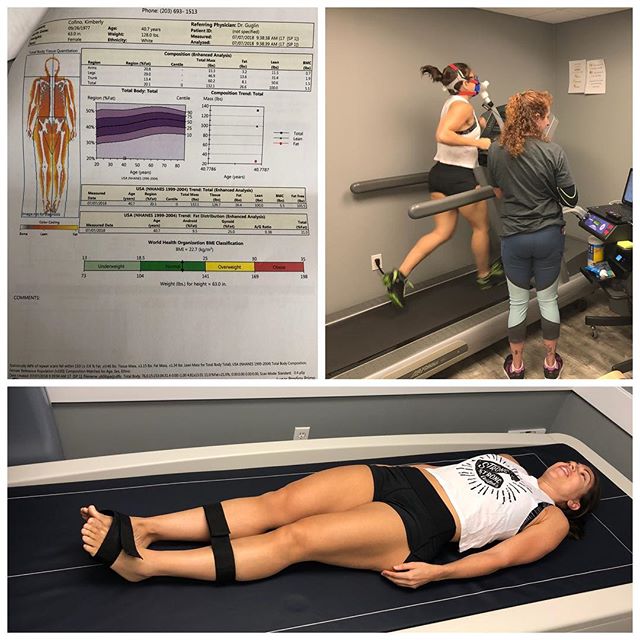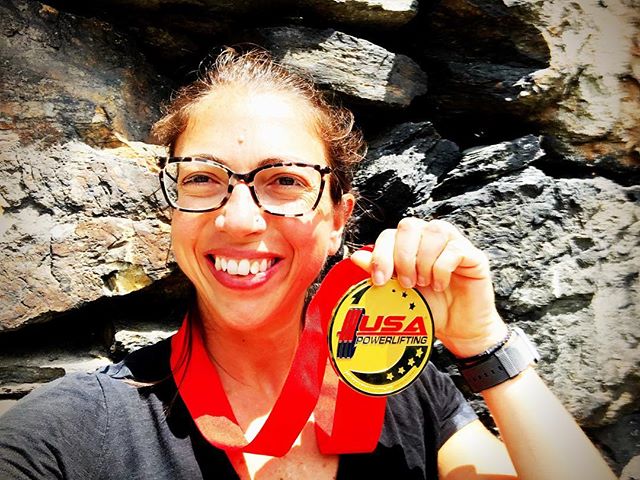
Dexa Data: Fit or Fat?
Last year I decided to cut weight from 64-ish kg down to 55-ish kg. Partly because I wanted to see if I could actually do it (I wasn’t sure if I had the willpower and discipline needed to intentionally cut weight), partly because I felt like my weight was getting away from me a bit and I wanted to feel a little more in control, and partly because I wanted to see if I would be more competitive in the 57kg weight class instead of 63. At the end of that cut, I competed as a 57 in my first USAPL meet.

Around the same time, I really wanted to do a Dexa scan to see what my body fat percentage was since that was the leanest I have ever been, but there were very limited options in CT, so I ended up doing a BodPod test instead. At the time, it showed me at 18% body fat. The BodPod is fairly accurate, but nowhere near as good as the Dexa, so I assumed that this was slightly less than I actually was (FYI: the bioelectrical impedance device I used in Bangkok had me at 15%, which I knew was definitely wrong).
Looking back, I am so glad I did that cut. Now I understand so much more about food and calories and exactly what I need to do if/when I want to cut weight. However, I don’t know if I really “needed” to cut that weight. Although I suppose I was relatively stronger, I definitely didn’t stand out as especially strong at my meet, and honestly, no one noticed or cared how much I weighed or what weight class I was in, except for me, and by then I didn’t care either.
Since then, I’ve been trying to come to terms with all of the things I know, but struggle to accept:
- no one cares about my weight but me,
- it’s not worth cutting or trying to stay in a weight class unless you’re qualifying for a national or international event, or you’re going to break some records,
- I want to be stronger, to get stronger usually you have to put on some weight,
- training feels better when you’re sufficiently recovered and fed, and recovery is easier with more food.
So, I’ve been slowly giving myself a little more freedom with food, trying to be less focused on exactly how much I’m eating, and more focused on how I feel. I still track calories and macros because I know I need some level of accountability and I want to make sure I meet my protein goals every day, but I am slowly allowing the scale to creep up a bit and trying not to let it scare me too much.

Writing this all down makes me feel a little silly for caring so much about scale weight, but participating in a weight class sport does mean that it is something I think about – even if it doesn’t “matter”, ultimately, I do know I will be stepping on a scale before I compete. And because I was obese for most of my adult life, I’m especially scared of getting “out of control.” I know that won’t happen because I have developed so many strong habits, I’m so much more aware of what I’m doing, and I have a purpose for eating what I eat, but it’s still a bit of an irrational fear I have.

Since I’ve allowed the scale to go up (and I competed with the 63s this summer, weighing in at 59.2kg), I definitely wanted to get a Dexa scan to see where my body fat was, anticipating that it would likely be higher than last year because it’s more accurate and I had actually gained a few kilos.

So, I went for a Dexa scan, VO2 max test, and RMR test at Live Lean in Milford, CT, a few weeks before my second USAPL comp. The results came back with 21% body fat, 1548 RMR, and I got to my VO2max after 4:45 of incline running. Knowing that the Dexa scan is the most accurate test you can get, I’m pretty pleased with these results. I don’t see any reason to be leaner than 20% body fat, and even with a more relaxed attitude towards tracking and macro counting, I’m still managing to maintain my weight well.

Although these tests were a little pricy, I learned a lot about my body that I can now apply over the course of this year – I’ll be back for a follow up next summer.
Some key takeaways were:
- I have 100lbs lean body weight. According to Michelle, my consultant, this is the “gold standard” that women should work towards. On the chart that shows the average body fat, I’m all the way down at the bottom, so it seems like that’s pretty lean. Also, this is great for me to know when considering my protein needs – the standard ratio of 1gP/lb of lean body mass means I need at least 100gP/day (and since I’m primarily plant-based, I know I need to add about 16% on top of that, getting me to around 120gP/day).
- My bone density is 1.32, which apparently is super high, like off the charts high. So that’s great!
- I’m fairly symmetrical in terms of left and right balance of muscle mass.

All of these are clearly thanks to powerlifting, and awesome programming from Ryan. And in terms of eating, this hasn’t been a challenge to maintain. Plus I feel great when I train.
More interesting things I learned:
- My RMR is around 1548. Web-based calculators always put me at closer to 1428. Now I know this is the baseline calories I should be eating on a rest day.
- After testing my VO2 max, I now know exactly how many calories I burn based on my heart rate, and that my fitness level is “excellent.”
- It turns out my Apple watch HR monitor is pretty accurate.




So, I can use all of that data to build up a macro profile that is actually based on my personal RMR and my actual lean body mass, rather than using random calculators online (and guessing my lean body mass), and if I want to get really science-y with it, I can adjust based on the amount of exercise I do each day!

All in all, these tests were well worth the cost and the time (the whole thing took around an hour). I’m excited to see how I can keep adjusting both my nutrition and my training to maximize performance and stay relatively lean (because I *want* to, not because I *have* to).
Are you interested in getting a Dexa scan, RMR or VO2 max testing? What stresses you out about fitness and nutrition?
One thought on “Dexa Data: Fit or Fat?”